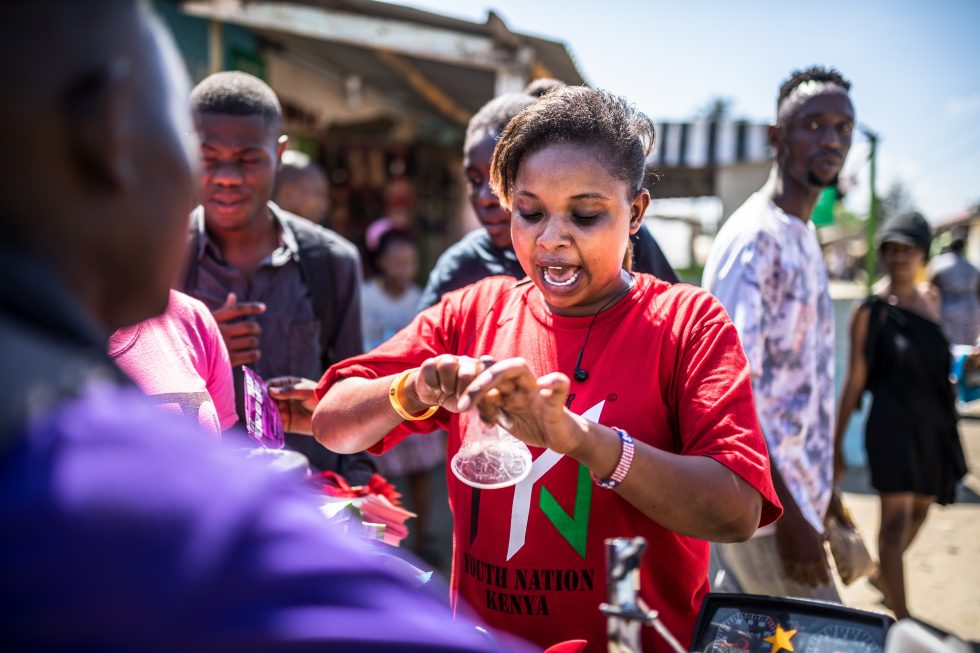KENYA: ELIMINATE BARRIERS TO CONDOM USE FOR HEALTHIER REPRODUCTIVE LIVES

For many years, condoms have been fronted as one of the key efforts in combating the spread of HIV. They are also vital in preventing unintended pregnancies if and when used correctly and consistently.
Kenya’s recently released 2022 Demographic and Health Survey (KDHS) indicates that condoms are a popular contraception and HIV prevention method. The knowledge of condom use to prevent HIV is at 79% among women and 84% among men aged 15-24 years. Condom is the top choice of contraception at 20% among unmarried women of reproductive age.
Condom use does not happen in a vacuum; societal dynamics on various levels, from individual to institutional, play a key role in determining uptake and use. According to the 2022 KDHS , women are less likely to use condoms than men raising questions as to what factors drive these numbers.
Reports have shown that a percentage of women are unable to negotiate for condom use due to socio-cultural factors and fear of domestic violence. To change this status, we must promote a safe environment where women are free to demand and negotiate safer sex from their partners without fear.
While it is common knowledge that condoms are effective when used correctly and consistently, many myths and misperceptions about them contribute to their inconsistent use, and therefore diminish their impact on the prevention of HIV, STIs and unintended pregnancies.
It has been proven repeatedly that countering these myths and misconceptions with factual information contributes to increased uptake and use of condoms. This is one of the reasons DSW Kenya in partnership with Bayer established lifeyangu.com, a platform through which young people aged 18-24 access accurate and friendly information on contraceptive methods, including condoms.
In addition to providing factual information, there is need to incorporate sensitisation around risky behaviour that might impact condom use. Emphasis should be on personal responsibility for the consistent and correct use of condoms. Studies have shown that behaviour such as alcohol and drug use can impair judgment and lead people to engage in unprotected sex. There’s also greater risk of infection and unintended pregnancy in engaging in unprotected sexual relationships with multiple partners.
All this cannot work without the availability of the commodities. Recently, Health Cabinet Secretary Susan Nakhumicha assured the country that condoms have been dispatched to counties, countering reports that there had been a shortage. She also indicated that they are streamlining the supply chain management process, something that will go a long way to ensure that these commodities are available and accessible to those who need them.
In eliminating these barriers to condom use, we will be in a better position to encourage safer sex. Consequently, this will contribute to the reduction of unintended pregnancies (at 37% in 2020 according to PMA Kenya) and HIV infections (with a prevalence of 4.0 in 2021 according to UNAIDS).
This way young people and women, who bear the larger burden of HIV infection and unintended pregnancies, can be better equipped to protect their sexual health.
This article was written by Ms Evelyn Samba, Kenya country director at DSW, and was first published by Capital News on February 16.





